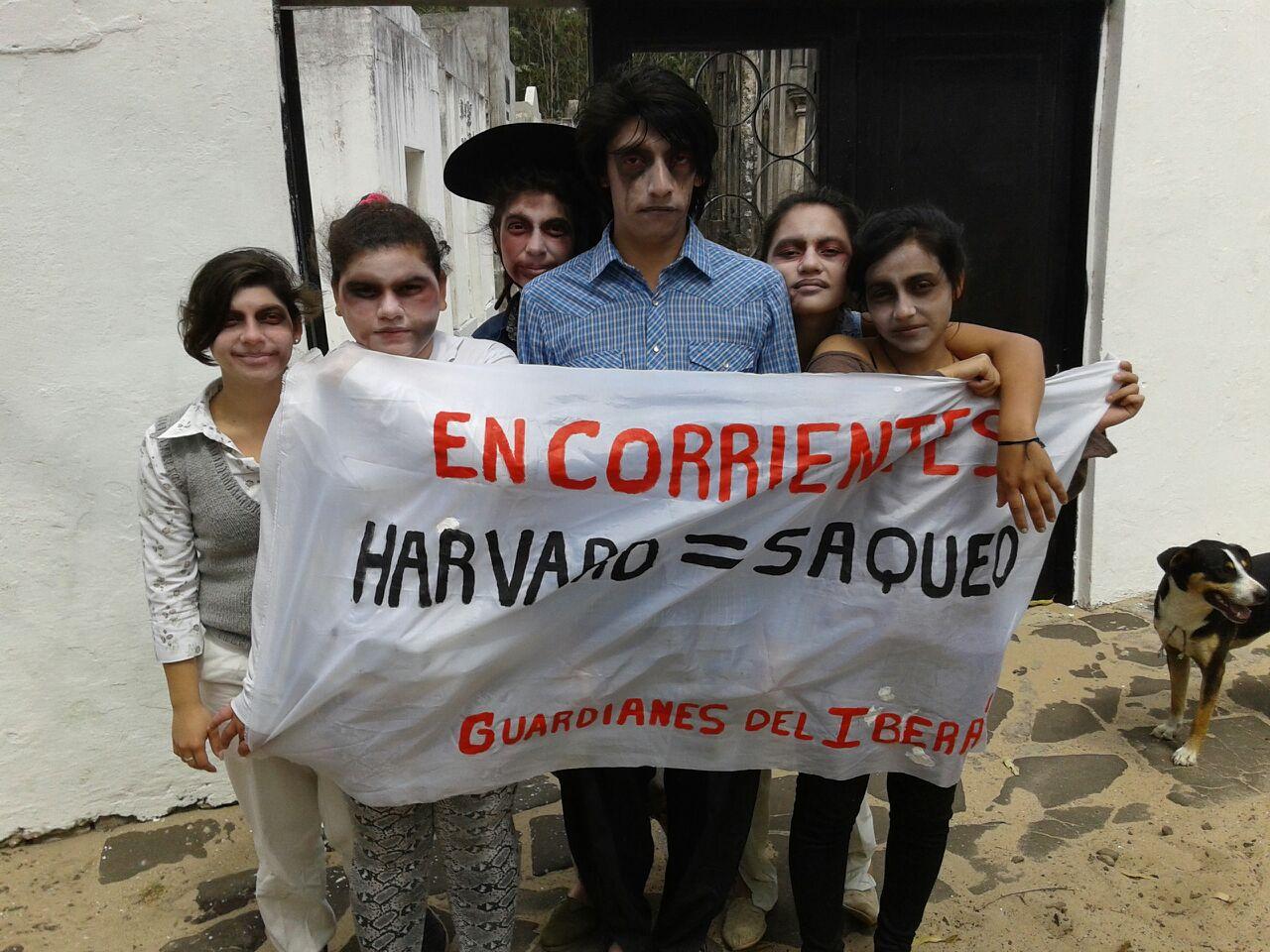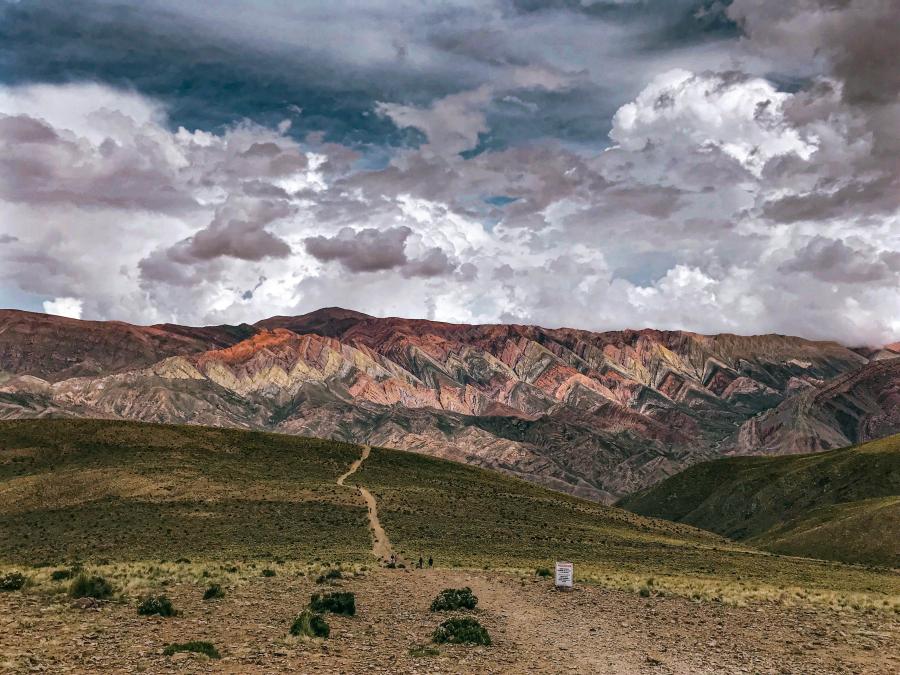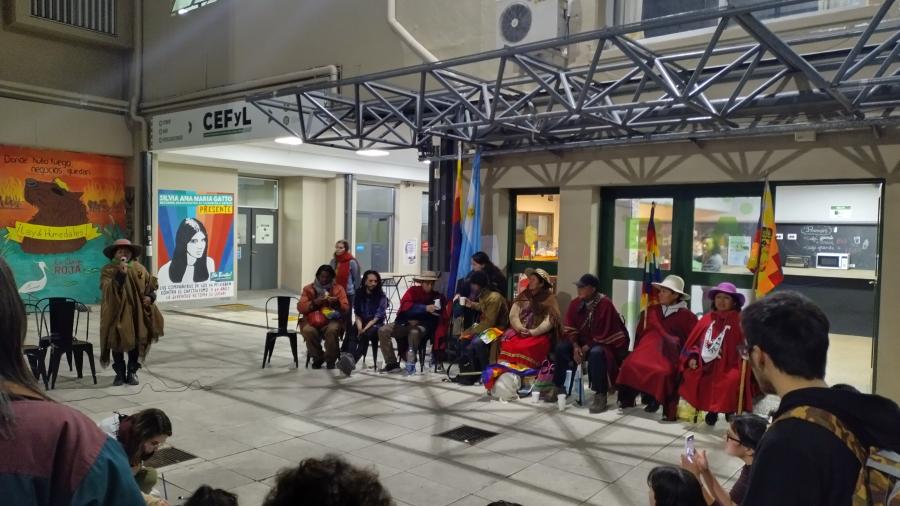
Local residents dress as zomies to protest the death of their culture and the Iberá wetlands they depend on.
In October, a protest broke out in the village of Chavarria, in Corrientes, Argentina, bordering the Iberá wetlands, one of the largest bodies of fresh water in the world and currently under threat by vast mono-cropped pine plantations in which Harvard University invests. While investing millions into plantations in the Iberá wetlands of Argentina, Harvard University continues to ignore concerns voiced by community members about their right to access their traditional and sacred lands and waters.
Around 30 local residents and farmers met in a creative and symbolic protest against traditional lands falling into the hands of foreign investors. The residents met at a local cemetery, now crowded by pine and eucalyptus plantations. They wore costumes, and painting themselves as walking zombies in traditional dress. They dressed as ‘menchos’ and ‘guainas’, symbolizing the death of Correntino culture. Due to disappearing lands and resources, many Guaraní people’s livelihoods are in danger. As a people who have long depended on natural resources as a means of sustainability, the acquisition of these lands by foreign institutions such as Harvard threatens irreversible damage on their way of life.
Harvard invests large sums of its $32.7 billion endowment in natural resources in the developing world. This includes Empresas Verdes Argentinas Sociedad Anonima and Las Misiones S.A., two timber companies jointly worth $55.2 million that control approximately 350 square miles of the Iberá wetlands system.
Community members are calling attention to the lack of access to their traditional lands for grazing animals and for subsistence farming. Since the plantations have taken over so much land, they have left only areas that are unable to be farmed or unfertile.
Residents, many of whom live within a few miles of the plantations, are asking Harvard to lead the way in responsible and sustainable land management and engage with them in dialogue. As a progressive institution on the forefront of education, Cultural Survival urges the institution to open a dialogue with the communities. To not do so would be in violation of multiple articles in the UN Declaration on the Rights of Indigenous Peoples.



